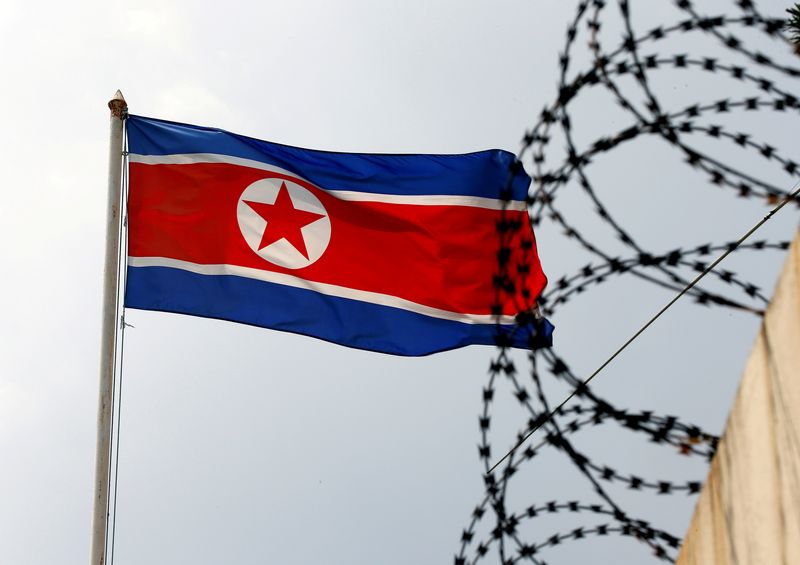North Korea blasts U.S.-South Korea summit deal for escalating tension
2023.04.30 19:43

© Reuters. FILE PHOTO: A North Korea flag flutters next to concertina wire at the North Korean embassy in Kuala Lumpur, Malaysia March 9, 2017. REUTERS/Edgar Su
By Hyonhee Shin
SEOUL (Reuters) – North Korea criticised a recent U.S-South Korea agreement to bolster the deployment of American strategic assets in the region for escalating tension to the “brink of a nuclear war,” state media KCNA said on Monday.
U.S. President Joe Biden and South Korean President Yoon Suk Yeol held a summit last week, during which Biden pledged to give Seoul more insight into its nuclear planning over any conflict with North Korea as anxiety grows over Pyongyang’s weapons programmes and the American nuclear umbrella.
Both leaders agreed to strengthen South Korea’s defences and regularly deploy U.S. strategic assets. As part of the efforts, a U.S. Navy nuclear-armed ballistic missile submarine will visit South Korea for the first time since the 1980s.
KCNA said the agreement stipulated the allies’ willingness to take “the most hostile and aggressive action” against North Korea, citing Choe Ju Hyon, whom it described as an international security analyst.
The stationing of American strategic assets has placed the situation of the Korean peninsula in a “quagmire of instability,” and was intended to build “aggressive and exclusive military blocs” in the region, it said.
“It is just aimed to dodge the responsibility for the worst-ever nuclear-related crimes it has committed by systematically destroying and violating the nuclear non-proliferation system, and in particular, pushing the situation of the Korean Peninsula to the brink of a nuclear war,” KCNA said.
“It is the hegemonic sinister aim pursued by the U.S. to turn the whole of South Korea into its biggest nuclear war outpost in the Far East and effectively use it for attaining its strategy for dominating the world.”
Pyongyang has reacted angrily to the Yoon-Biden summit, saying it consolidated its conviction to perfect its “nuclear war deterrent.”








